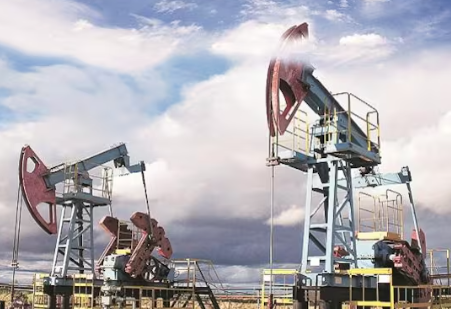Oilfields (Regulation and Development) Amendment Bill, 2024
The Rajya Sabha intended to discuss the Oilfields (Regulation and Development) Amendment Bill, 2024. However, the session concluded without any progress on the matter. The bill aims to stabilise policies for oil and gas companies, which seeks to promote international arbitration. The goal is to boost domestic production and reduce reliance on costly oil imports.
Current Oil Import Situation
India’s oil imports have consistently outpaced exports. Imports are currently three times higher than exports. This trend marks the urgent need to enhance local production. Experts stress that domestic output must increase faster than rising energy demand.
The Bill broadens the definition of “mineral oils,” which includes shale oil, gas hydrates, and tight gas. However, it excludes coal and helium. A new “petroleum lease” is introduced to streamline exploration and production, which aims to minimise unnecessary approvals and reduce regulatory confusion.
Expanded Regulatory Powers
The Centre’s regulatory powers will see expansion. The government can now set rules for emissions reduction. It will also oversee sharing of production facilities and resolving lease disputes. The Bill promotes using oilfields for green technologies, including hydrogen production and carbon capture.
Penalties for specific violations will shift from criminal charges to administrative fines. Increased monetary penalties will ensure compliance while encouraging innovation.
Exploration in Restricted Areas
The Bill allows oil exploration in previously restricted areas, which includes zones designated as “no-go,” such as missile testing areas. This change could unlock large land sections for exploration and address past project delays.
Experts caution that substantial reductions in oil imports will depend on sustained domestic production growth. A stronger emphasis on renewable energy is also essential for long-term energy security.
Important Facts for Exams:
- Rajya Sabha: The Rajya Sabha is the upper house of India’s Parliament. It represents the states and union territories. Members are elected for six-year terms, ensuring representation of regional interests.
- Hydrocarbon Exploration and Licensing Policy (HELP): HELP is an Indian policy aimed at enhancing hydrocarbon exploration. It promotes investment in oil and gas sectors, aiming to increase domestic production and reduce imports.
- Gas Hydrates: Gas hydrates are ice-like structures containing methane. They are found in ocean sediments and permafrost. They are considered a potential future energy source, though extraction remains challenging.
Month: Current Affairs - December, 2024
Category: Economy & Banking Current Affairs


